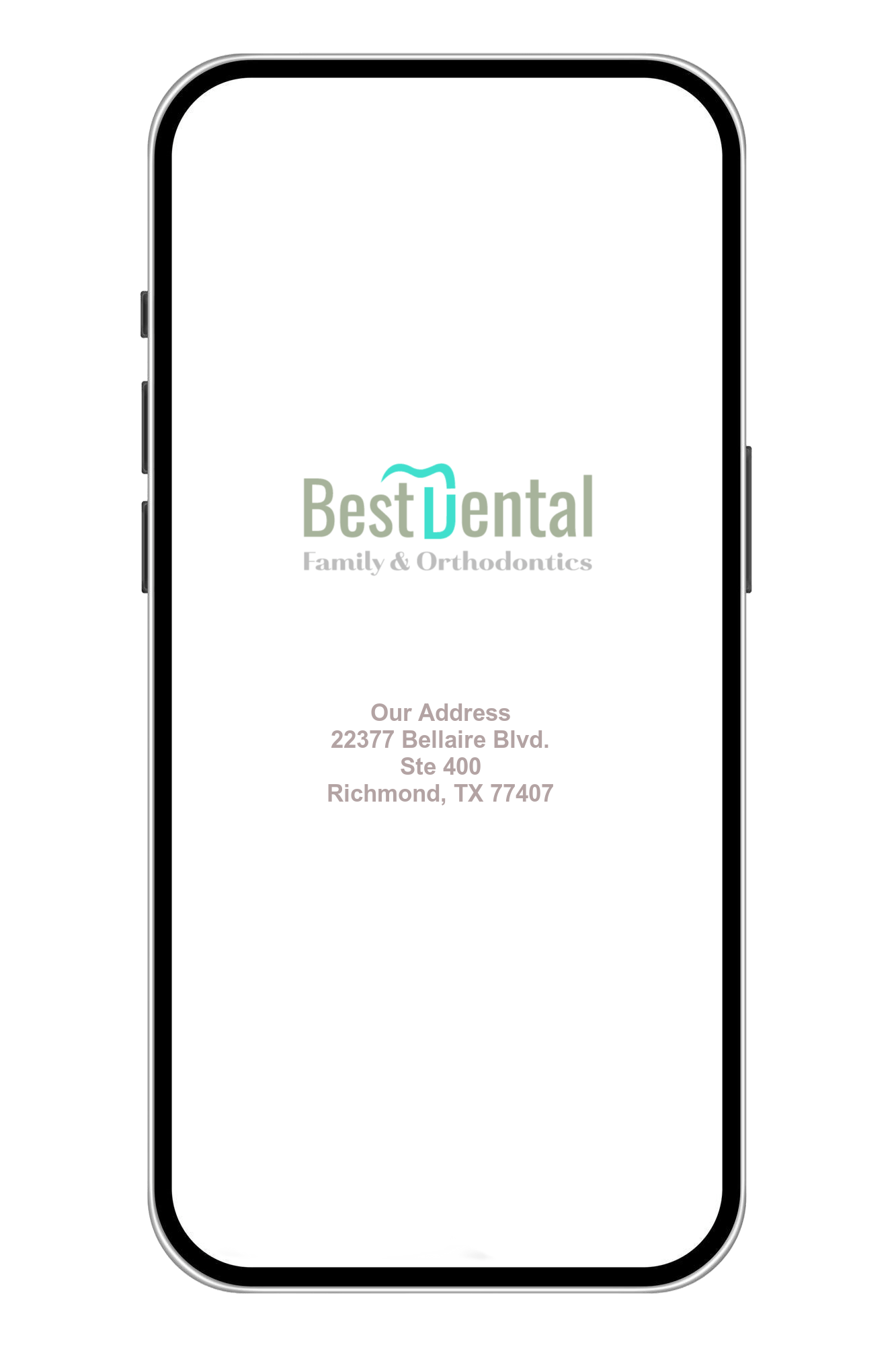Oral Cyst
Removal
Houston, TX
Oral Cyst And Mucocele Removal Options For Houston Residents
If you’re experiencing discomfort or noticing unusual growths in your mouth, you may be dealing with an oral cyst. At Best Dental in Houston, TX, we specialize in the diagnosis and removal of oral cysts, including common types like mucoceles and fibromas. Led by Dr. Sonny Naderi, our team is committed to providing affordable, high-quality care to restore your oral health. With oral cyst removal starting at just $500, we make it easy to get the treatment you need without breaking the bank.
Oral Cyst Removal Costs at Best Dental
| Service | Cost at Best Dental | Average Cost in Houston, TX |
|---|---|---|
| Mucocele Removal | $500 | $600 - $800 |
| Fibroma Removal | $500 | $600 - $850 |
| Other Oral Cyst Removal | $500 - $700* | $700 - $1,000* |
*Costs may vary depending on the complexity of the case.
Why Choose Best Dental?
| Feature | Best Dental | Other Clinics |
|---|---|---|
| Cost of Mucocele Removal | $500 | $600 - $800 |
| Cost of Fibroma Removal | $500 | $600 - $850 |
| Transparent Pricing | Yes | Varies |
| Experienced Dentist (Dr. Sonny Naderi) | Yes | Varies |
| Follow-Up Care Included | Yes | Often Extra |

What are the common causes of oral cysts and mucoceles?
Oral cysts and mucoceles can develop for a variety of reasons, often stemming from everyday occurrences like accidental bites or irritation from dental work. These little bumps or growths in the mouth are usually the result of trauma or damage to the soft tissues, which can happen more easily than you might think. For example, mucoceles, those small fluid-filled sacs you might notice on your lip or inside your cheek, often form when minor salivary glands get blocked or damaged. This causes saliva to build up in the surrounding tissue, creating a small, painless bump.
Chronic irritation, like repeatedly rubbing your tongue or cheek against a rough tooth or dental appliance, can also lead to these cysts. Even something as simple as constant pressure on the soft tissues of your mouth can contribute to their development. In some cases, underlying oral health issues—such as infections, dental cysts, or developmental abnormalities—might play a role. And while it’s less common, factors like genetics or hormonal changes could also make some people more prone to developing oral cysts and mucoceles.
The good news is, these growths are usually harmless and treatable. If you notice something unusual in your mouth, it’s always a good idea to have it checked out. At Best Dental, Dr. Sonny Naderi and our team are here to help you understand what’s going on and provide the care you need to keep your smile healthy and comfortable.
How can I distinguish between a mucocele and other types of oral cysts?
Figuring out whether you have a mucocele or another type of oral cyst usually takes a careful look by a skilled dentist. Mucoceles are pretty easy to spot—they’re those small, painless, fluid-filled bumps that often look bluish or clear. You’ll usually find them on the inside of your lips or under your tongue. They can change in size and might even burst on their own, giving you some relief before they pop up again.
On the other hand, other oral cysts, like epidermoid or dentigerous cysts, tend to feel more solid or semi-solid. These often form near the roots of teeth or even inside the jawbone. Unlike mucoceles, these cysts might come with symptoms like pain, swelling, or even shifts in how your teeth line up.
To get to the bottom of it, your dentist will likely do a thorough exam and might use imaging tools like X-rays or CT scans to get a clearer picture. In some cases, they might even take a small sample (a biopsy) to confirm exactly what’s going on. At Best Dental, Dr. Sonny Naderi and our team are here to help you figure it all out and make sure you get the right care for your unique situation. If you’ve noticed something unusual in your mouth, don’t hesitate to reach out—we’re here to help!
Consulting with a qualified dentist or oral surgeon is essential for an accurate assessment and appropriate treatment plan.


What are the potential risks or complications associated with the removal procedure?
While oral cyst and mucocele removal procedures are generally safe, there are potential risks and complications that patients should be aware of. These may include but are not limited to temporary bleeding, infection, or nerve damage, which can lead to altered sensation in the affected area. There is also a slight risk of damage to surrounding tissues, which could affect oral function and aesthetic appearance. In some cases, there might be a recurrence of the cyst or mucocele if the removal is incomplete or if the underlying cause is not adequately addressed. Adverse reactions to anesthesia, though rare, are also possible. It is crucial to discuss these potential risks thoroughly with the oral surgeon and follow all post-procedure care instructions to minimize the likelihood of complications. Regular follow-up visits can help monitor the healing process and identify any concerns promptly.
What to Expect During Oral Cyst Removal
The process of removing an oral cyst is straightforward and typically completed in a single visit. Here’s what you can expect:
- Consultation and Diagnosis: Dr. Naderi will examine your mouth and may use imaging technology to confirm the type and location of the cyst.
- Treatment Plan: Based on the diagnosis, Dr. Naderi will recommend the best course of action. For mucoceles and fibromas, this usually involves a minor surgical procedure to remove the cyst.
- Cyst Removal: Using local anesthesia to ensure your comfort, Dr. Naderi will carefully remove the cyst and any surrounding tissue if necessary. The procedure is quick and minimally invasive.
- Aftercare Instructions: After the procedure, you’ll receive detailed instructions on how to care for the treated area to promote healing and prevent infection.


Are there any specific steps I can take to minimize the chances of recurrence after the removal?
After having an oral cyst or mucocele removed, there are a few simple steps you can take to help prevent it from coming back. First and foremost, keeping up with good oral hygiene is key—brush and floss regularly to keep your mouth clean and reduce the risk of infections or irritation. It’s also a good idea to avoid habits like biting your lips or cheeks, which can cause trauma and potentially lead to new cysts forming.
Don’t skip your follow-up appointments! These check-ins are important to make sure everything is healing well and to catch any potential issues early. If you notice anything unusual in your mouth, like a new bump or sore, let your dentist know right away. Staying in touch with your dental care provider and following their advice for long-term oral care can go a long way in keeping your mouth healthy and reducing the chances of a recurrence.

